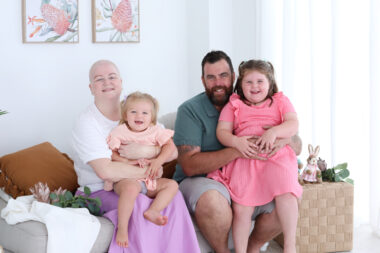With 2023 declared the hottest year on record, and heatwaves in Australia becoming more frequent, more intense, and longer-lasting, our health is at risk. Heatwaves contribute to an 11.7 per cent increase in cardiovascular disease related deaths.
Monash Victorian Heart Institute has prepared fact sheets for communities and health professionals that outline how to prepare for and deal with extreme heat. Tips include:
BE PREPARED
- If you take medicines for a heart condition, your doctor might need to adjust them
- Store medicines correctly in a dry or cool place
- Limit the time spent outside when it’s hot; try to organise activities early in the morning or later in the evening.
- Check on people who are isolated or might need help, especially if they have a heart condition or other chronic condition like diabetes
- Ensure electric life-saving medical equipment is registered with your energy supplier.
KEEP COOL
- Stay indoors and use an electric fan or air conditioner
- Take a cool shower or bath, or sponge yourself with cool water
- Put crushed ice in a towel and place it around your neck or on your chest
- Keep your clothing wet by spraying yourself with cool water
- When outside, stick to the shade where possible
- Wear loose, light-coloured clothing
- Reduce physical activity when it’s hot and take breaks often
- Avoid being outdoors when the sun is at its strongest (about noon to 3pm)
- Eat small easy to digest meals such as fruit, salads or sandwiches; avoid using hot appliances
- Stay hydrated.
Available to comment:
Dr Hui-Chen Han, cardiologist and researcher at the Victorian Heart Hospital and Monash Victorian Heart Institute
Contact details: +61 3 9903 4840 or [email protected]
Read more of Dr Han’s commentary at Monash Lens
- Heart health
- The heart’s electrical system (rhythm)
- How heat can affect the heart
- Preventing and dealing with heart issues
The following can be attributed to Dr Han:
"Certain cardiac medications can increase a person's risk of developing dehydration. It may be useful to discuss with your doctor about possible medication plans in times of extreme heat.
"People with cardiac conditions may be more prone to the adverse effects of extreme heat. If possible, plan to have prescriptions filled and important appointments to occur during cooler days or early in the morning."
Associate Professor Zerina Lokmic-Tomkins, Monash School of Nursing and Midwifery, Registered Nurse, Advocate for Climate Change Mitigation and Adaptation to protect planetary health, Research Lead for Climate Change and Sustainable Healthcare
Contact: + 61 (0) 3 9903 4840 or [email protected]
Read more of Associate Professor Tomkins’ commentary at Monash Lens
- heart health
- impacts of climate change on health generally
- maternal and child health
The following can be attributed to Associate Professor Lokmic-Tomkins:
“It is important to be familiar with potential warning signs that may indicate heat stress, such as feeling dizzy, having a rapid pulse, or experiencing nausea. If you encounter any of these symptoms, especially if you have a pre-existing heart condition, please seek medical attention without delay. Seeking help early ensures a timely assessment and management of your health concerns.
“If your place is not air-conditioned, keep your home cool by opening windows and shutters at night and early morning when temperatures are lower. During the day, close windows, blinds or shutters (if available), especially those exposed to direct sunlight. If you have an electric fan, use it. Staying hydrated is crucial, so drink water and avoid caffeine and alcohol during hot weather.
“In times of heatwaves, community solidarity becomes crucial. I encourage each of us to check in on vulnerable members of our community, particularly the elderly or those with heart problems. It's essential that we stay well-informed about the locations of cooling centres and local emergency medical services, ensuring easy access to help if needed. We need to support each other during these challenging times.”
For more Monash media stories visit our news & events site: monash.edu/news
For any other topics on which you may be seeking expert comment, contact the Monash University Media Unit on +61 3 9903 4840 or [email protected]


